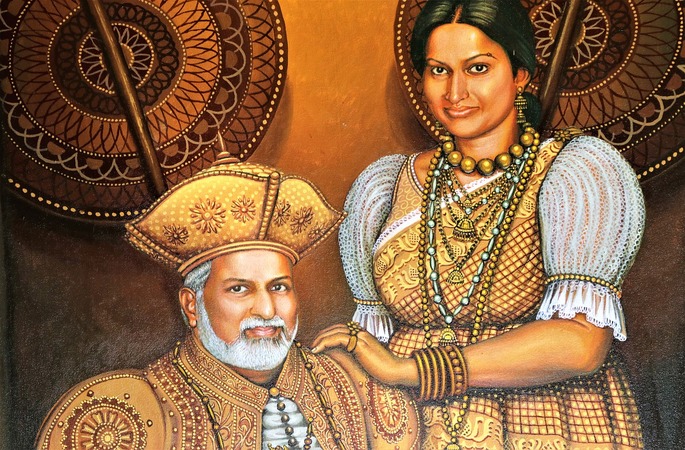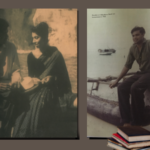InstaHistory is a new platform of human knowledge. In a preface to a monograph on the Kandyan Kingdom of Sri Lanka, the Cambridge historian, Sujit Sivasundaram, acknowledges, (one imagines, with a smile), that “Everyone in Sri Lanka is a historian of sorts: everyone wishes to put you right when you tell a historical story.”
As with certain other professions in Lanka, the barrier to gain entry to history in Lanka is curiously low. History is ‘manufactured’ by the state, politicians, and multiple retired gentlemen-hobbyists.
But not all histories are equal. What distinguishes professional history?
The American historian Jill Lepore explains: “History is the art of making an argument about the past by telling a story accountable to evidence.”
Many features are noteworthy here. One, Lepore’s insistence on history as narrative and interpretation. It is not uncommon for most references to historical works in Lanka to cite scholarship that is usually about/over fifty years old. What this reveals, more than anything is a lack of concern for the fact that history is an interpretive discipline, open and evolving.
Therefore, it is both a duty and a necessity to consult more recent works. Importantly, however, this has less to do with an unwillingness to engage with more recent work, and more to do with the nature of shrinking local history departments, abysmal state funding for the universities, and the fact that monographs from overseas publishers (Chicago, Oxford, Duke, et al.) rarely make it into local bookstores for long enough (if at all) to enter widespread popular circulation.
Secondly, sources lie, and so do some historians. “Historical inquiry relies on standards of evidence because documents aren’t to be trusted,” Lepore concludes.
Unfortunately, it is lost on most Sri Lankans that an ‘appeal to authority’ does not make a historical argument. The most glaring example of this lack of documentary scrutiny is what the scholar Seneviratne has called ‘The Mahavamsa view’: The scholarly approach which has bled through into history, anthropology, and archaeology, which takes a 5th-century chronicle to relate the early history of the island, most specifically, to tell a tale of Aryan-colonization of the island.
Early religiously-inflected chronicles which compose genesis-myths for nations are not uncommon: this is the role of the works of Bede in England (672-735 CE) or Gregory of Tours in France (538-594 CE).
Either of these could be used to create Ur-myths for original inhabitants along particular ethno-linguistic lines. The difference lies in what standards of inquiry and critique are applied when reading these sources, and their role in public life.
History is not about superstitious myth-making. Sri Lankans are inclined to romance: myth and conspiracy abound, in many spheres of daily life.
In Ashok Ferry’s latest novel, The Ceaseless Chatter of Demons, his protagonist explains the local propensity for the supernatural:
“[In Sri Lanka] we’re all supposed to be Buddhist or Christian or Hindu or Muslim, but this belief in good and evil spirits goes back much further…much of our life in Sri Lanka is spent driving out evil spirits and propitiating good ones.”
The danger of this inclination for superstition is that it may affect the way we articulate our past.
Thirdly, in popular discourse, historical ‘Myth-busting’ often replaces accepted narratives with other myths. For Sri Lanka’s 70th Independence Day, Groundviews, a local online citizen-journalism platform, featured content from different contributors.
One series of artwork proclaims (with the requisite stock Sigiriya apsara image):“Before colonialism, the Lankan woman was free to roam where she wanted!” This refrain: “Before Victorian values, Sri Lankan were very free!” is a favourite that people presume is ‘myth-busting.’
In fact, this comment shows ignorance of the educational, social and practical realities of pre-modern Lankan life (see: sexist, classist, profoundly and decidedly non-egalitarian). Taking an example like the regulation of marriage laws (the British imposed Marriage Ordinances to stop polygamy/bigamy) does not in any way, imply greater sexual freedom for women previously, unless this is backed up with adequate context. The ‘glorious’ age of Lanka was glorious – for a very select few.
Since late October 2017, I have run an Instagram account called @Lankanhistory.
The site aims to tell historical narratives and explore the field, drawing upon multiple resources and seeking to generate critique, dialogue, and investigation (insert other hot buzzwords here).
Instagram is a slippery platform. As many have pointed out to me, all the contents are authored in English. It is also a platform that is far more class-restrictive than say, Facebook, where the Sinhala language circles are far more robust.
The media is highly visual, which can reduce the importance of text for many people (“took me too long to read” or “my newsfeed shorted the caption, and I didn’t bother to expand it”).
The site has roughly 1000 followers and 100 regular followers who engage with the content.
To mistake a ‘double-tap’ for serious historical engagement would be foolish. Instagram is limited and can tend towards shallow engagement, for instance, by being less conducive to comment threads than say, Facebook, or an online journalism site.
In a recent article for The Baffler on the phenomenon of Instapoets, like Rupi Kaur, Soraya Roberts explains: “Instagram has formed an algorithmic utopia in which negativity is a distant nightmare and regurgitated dreams choke our real-life desires with their wholesome effluence”.
Online, our taste is not formed, it is dictated. The founder of Instagram has envisioned it as ‘the nicest place online,’ which sounds a lot like an advertising slogan – which is, perhaps, the point. Roberts’ warnings are useful to heed on a site onto which I have pegged words like ‘public engagement–interpretation–critique.’
Last month an academic wrote to me on the site (sliding into the DM as they say) to ask for a ‘Research meeting.’ I presumed her interest was in a particular field of history (gender, social, military, labour?), where we might discuss sources, ideas or historical trends.
Her research object, it turned out, was me:
“How do you see your digital self?
Who do you imagine your audience to be?”
Her interest was in self-fashioning in the online world, and the role of my authorship of @Lankanhistory in creating a ‘persona’ online. I do not know what the answers to this inquiry are, but perhaps they too, like the discipline of history, are open.



